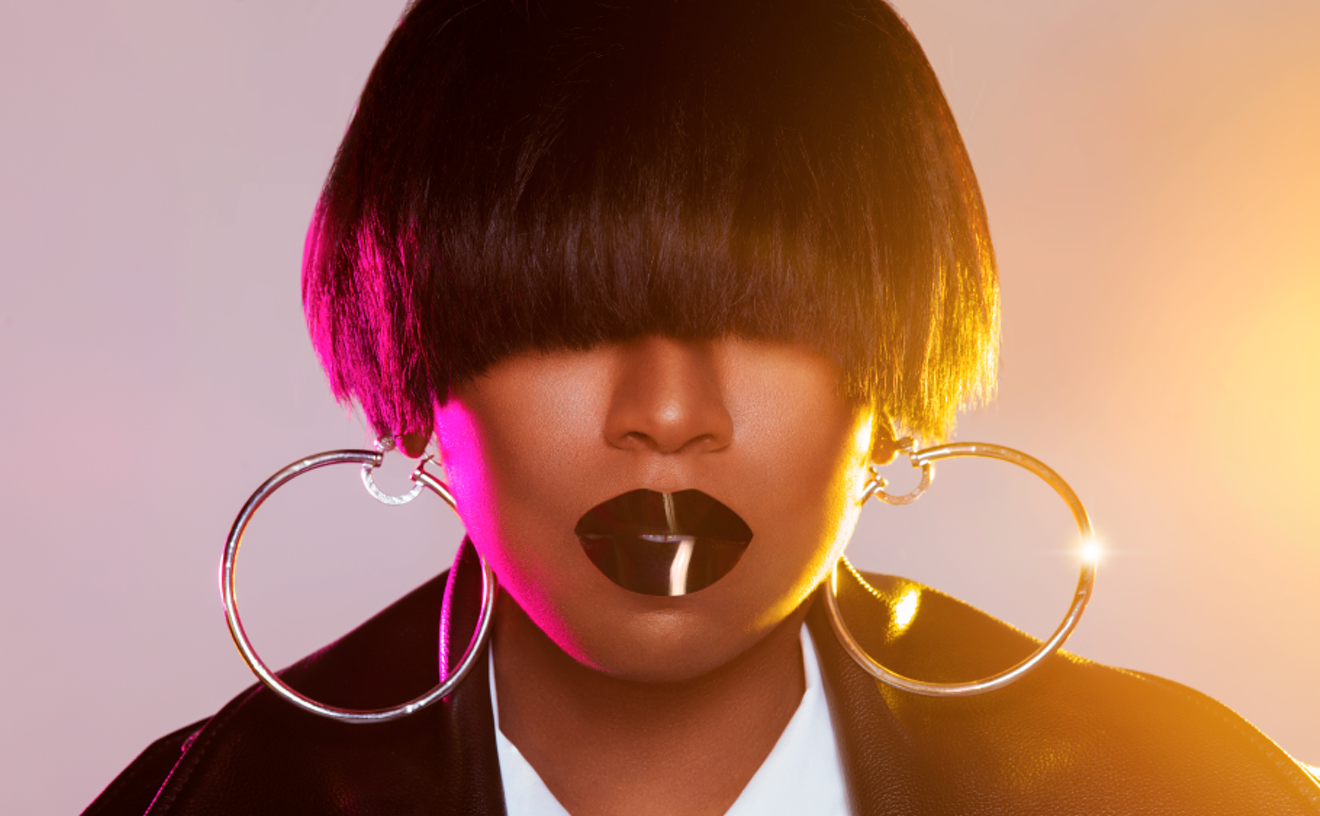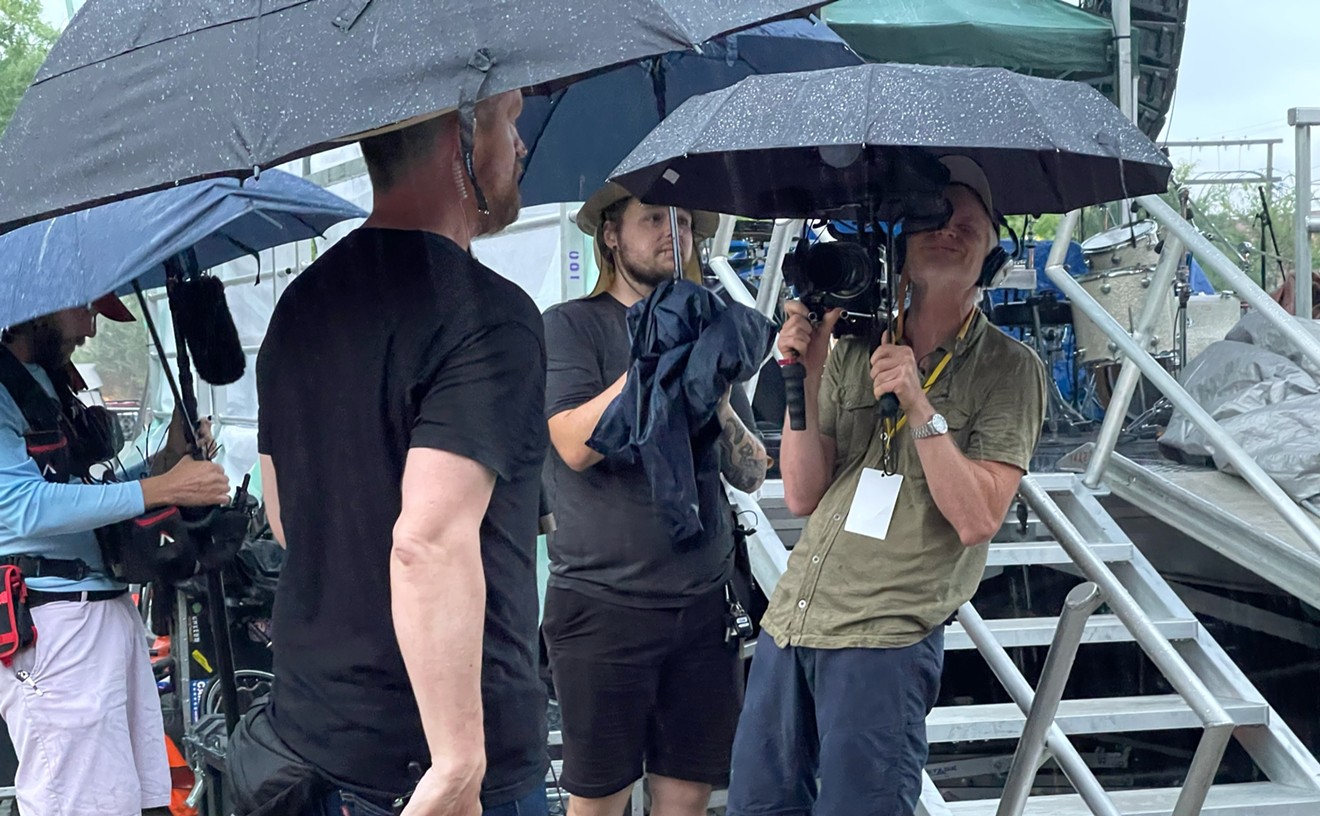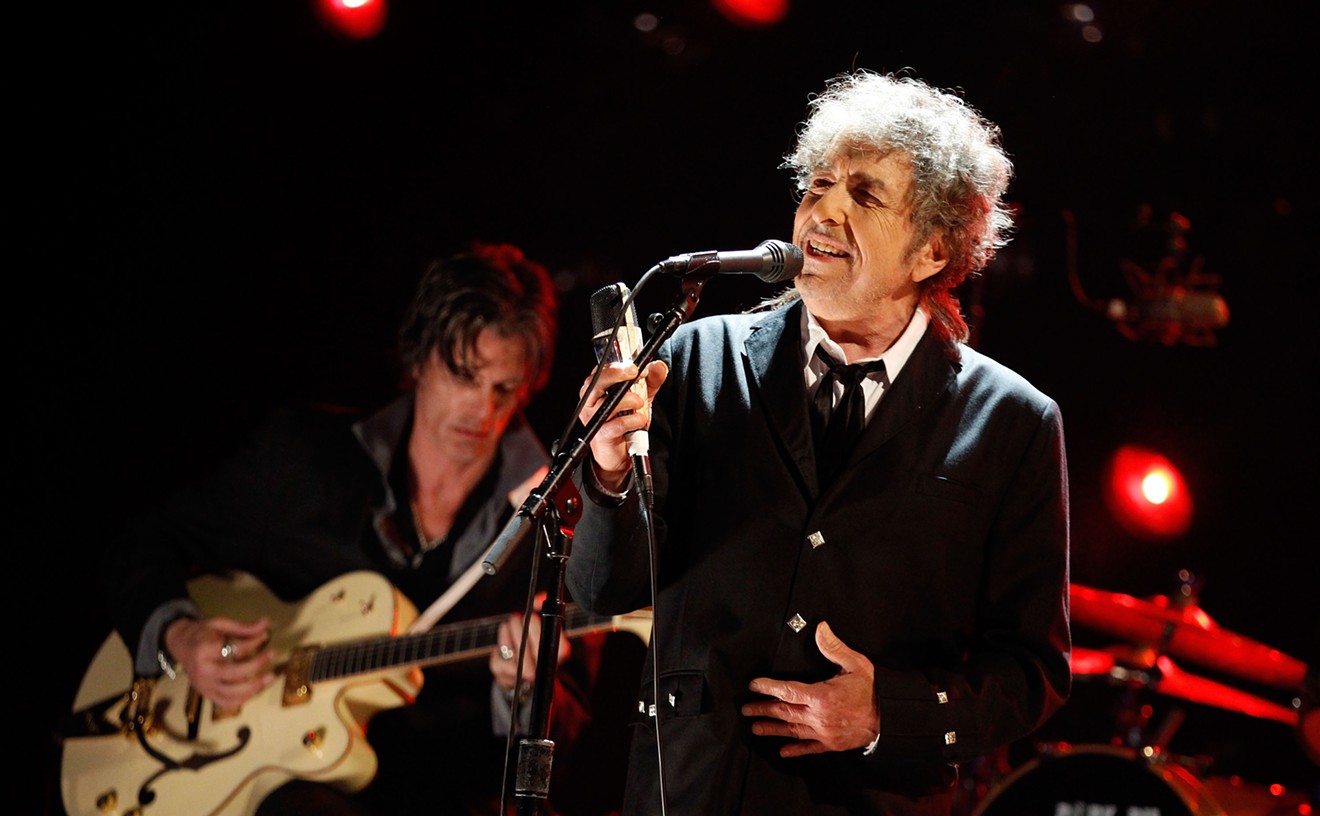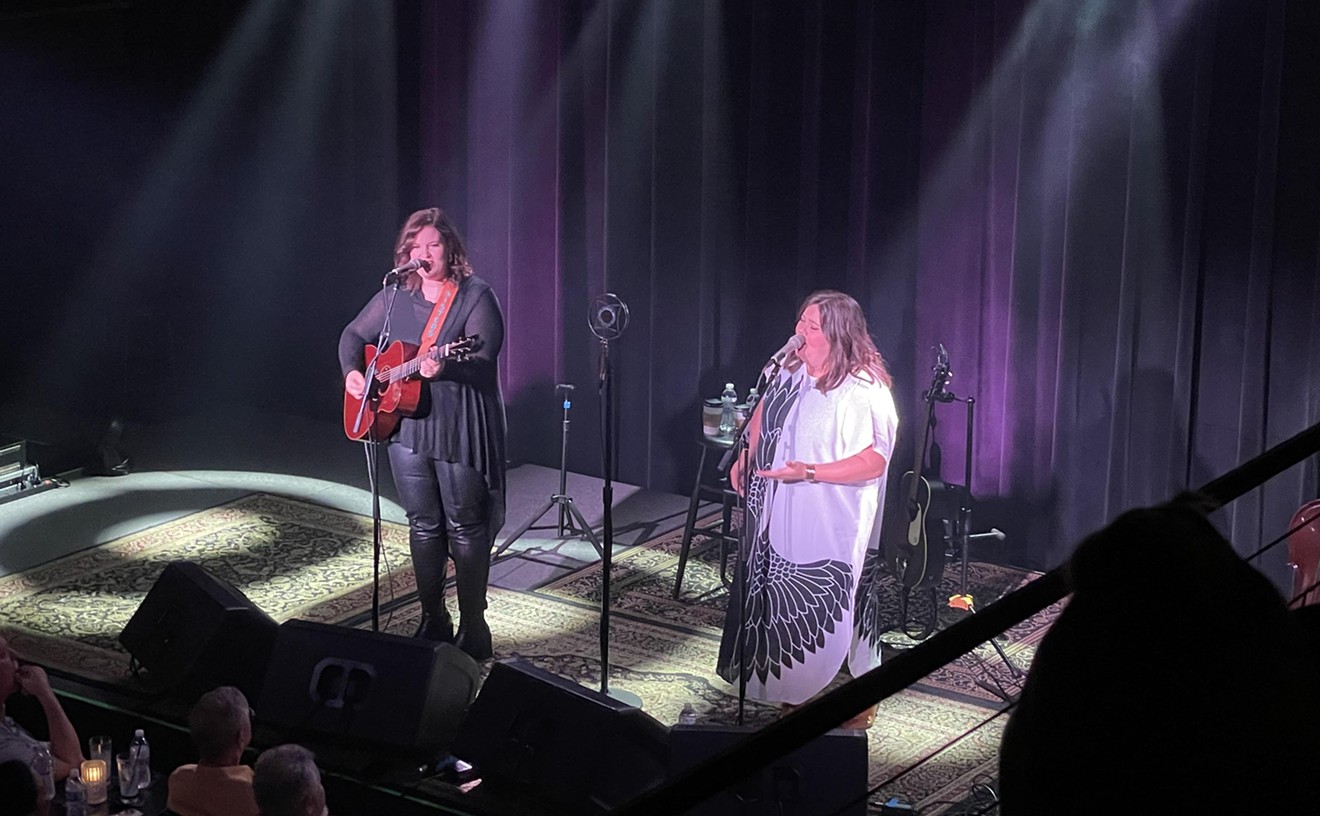Denver quartet The Fray are one of those successful pop bands that are pretty easy to dislike. Their songs pop up on shows like Grey's Anatomy and the band has built a loyal fan base within the Christian music market. However, despite massive popularity, songs such as "Over My Head (Cable Car)" and "How to Save a Life" really wouldn't sound out of place coming from any number of indie bands.
Speaking from a tour stop in Providence, Rhode Island, and in anticipation of Saturday's show at the Palladium Ballroom, singer Isaac Slade spoke about The Fray's quick ascension.
How long have you known guitarist Joe King? We've played a lot of rooms together. We met in high school choir. I sat behind him. We've played in front of record executives and we were eating fast food when we found out we got nominated for a Grammy. We've definitely been in a lot of rooms.
Your first album, 2005's How to Save a Life, has been certified double platinum. Does such success make it difficult to make successive albums? I think it places more difficulty on our fans to focus on what we're doing and not how big it is. You're not supposed to have that much visibility before you are ready. In this microwave culture, people want the celebrity to come in some pre-wrapped package. You get to take it out of the box and it's this huge something. We think it's all about that slow burn. For me, it's all about albums three, four, five and six. That's when you could really see who Radiohead was. Or even U2 - it was their fourth or fifth record that really stood out. I kind of have that mentality. We had a crazy, cool start with a huge record, but, in my mind, we are a couple steps up from the bottom, but we are nowhere near where we need to be.
So many bands have to pay some dues before hitting it big. Do you feel lucky? You could say that to be sure, looking at our story. We played in obscurity for a very long time before we got signed. Those were the days that shaped us and formed us and taught us the magic of a good song. Early on, we were playing these shitty songs. Everyone would just stare at us and then go get a beer. Suddenly, we started writing different songs and people started leaning closer to the front of the stage and not going to the bathroom. You need those early days to see that kind of visceral response to the good and bad stuff. Look at Tori Amos. She had 16 records before she got huge on the radio. Kids were then asking who that new singer was.
When you go back home to Denver and get a huge crowd, do you want to ask them where they were back when you were struggling? No, they were always the biggest crowds from the beginning. We are reminded of it every time we come home. We've sold 28,000 tickets for one weekend at Red Rocks.
Your albums have been successful all over the world. How does your music translate so well to other countries? That's a good question. You tell me. We don't write songs to connect to Sweden. We simply write songs to connect to other humans. We don't view it as a means to communicate some kind of message or to proselytize. We want to capture the essence of what it means to be alive and to wake up and realize that you may never be as happy as you want to be. And that's OK. We are an aftermath of disappointment band.
Your music has been embraced by fans, but the critical reception had been mixed. Do you care and do you think critics are inherently biased against popular acts? I don't spend too much time stressing about it. I've never had popular approval since I was in junior high. I want to go after what it means to be myself. I'm not sure if I nail it every day. I have seen artists try and make the critics happy and that can hurt the fans. We've always tried to focus on the songs. We're just a bunch of kids from Denver and I don't know what the New York/London/Los Angeles cultural Gestapo are looking for. It's not our stuff and that's cool.
Do you read reviews of your music? I have a system where a couple of buddies read them for me. They summarize them for me. I have a friend of mine who is an actress who tells me she doesn't touch the stuff. It's kind of like drugs. It's kind of fun until you get a bad one.
Most of the members of the band went to a Christian school and your music has been embraced by fans of Christian music. Is there a spiritual component to your music and do you think some artists shy away from being identified with the genre? First of all, Christianity is such a personal thing. I wish that I could take you out for a beer and ask you what Christianity means to you. I wish I could ask every single one of your readers. I tend to shy away from making blanket statements about my faith. For me, what I believe comes second to being a musician and a singer and a songwriter.
Did you really choose the band's name by putting random phrases from a hat? It was a fishbowl, actually. It was after our second performance, a graduation party. We were asked for a name so we grabbed this fishbowl and put in five name suggestions. We had 200 name ideas and we kept going online to see if they were already being used.
Do you remember some of the other names? I liked Belladonna because it was a poisonous plant that looked really pretty, but when we looked it up, we found that a pretty successful, regional hair metal band used that name. So, we let that one go. We thought about using the Street Fighters. I told the guys that name would invite the wrong clientele.
The Fray performs with Dia Frampton on Saturday, April 28, at the Palladium Ballroom.










